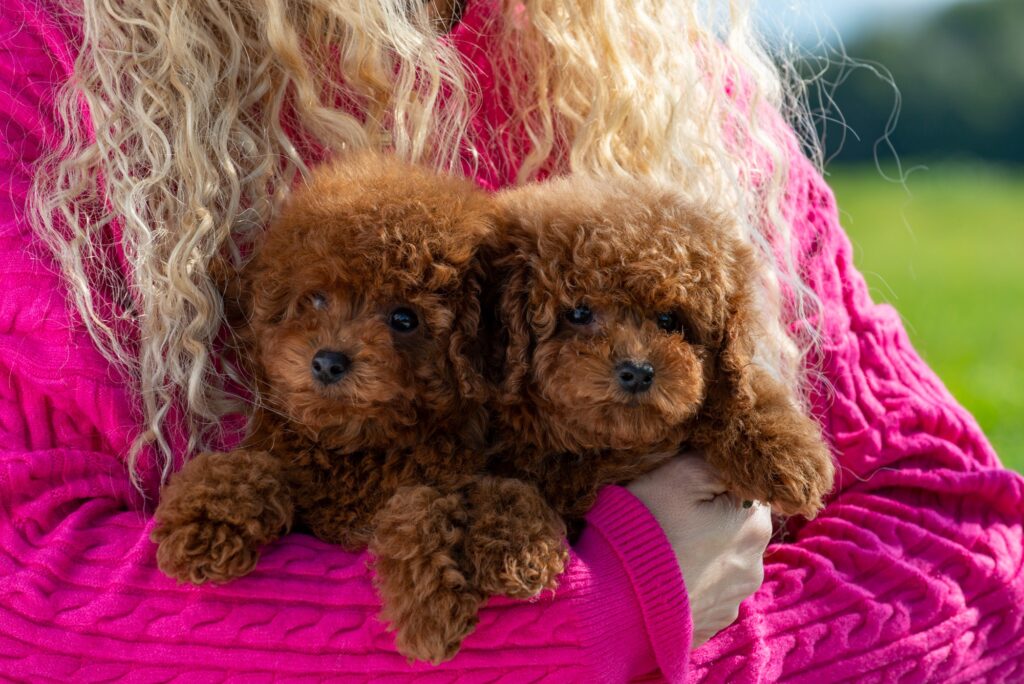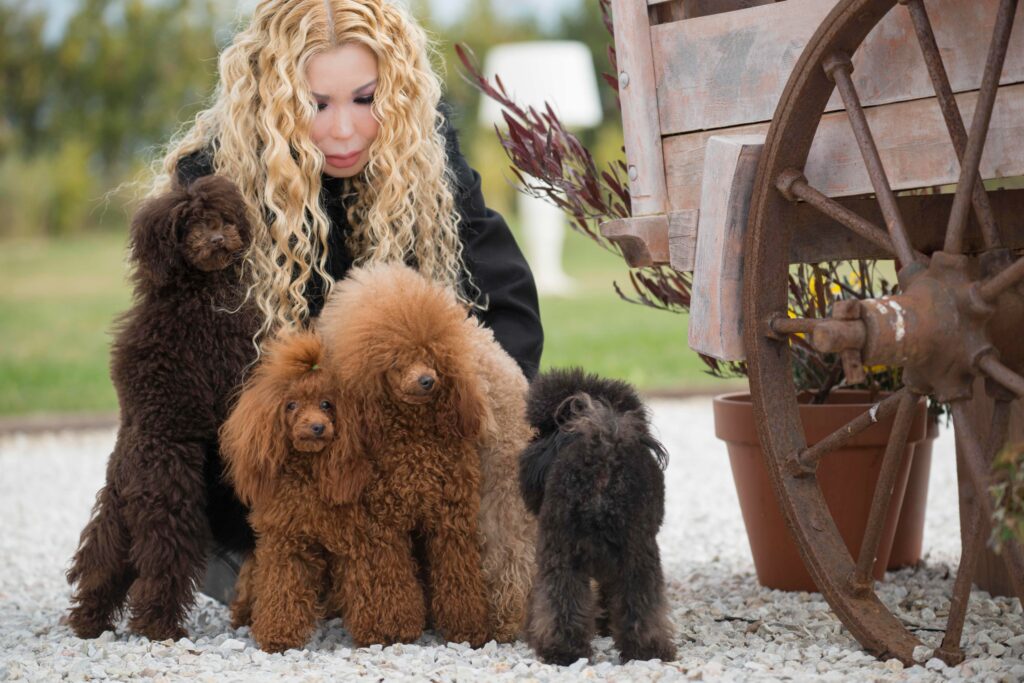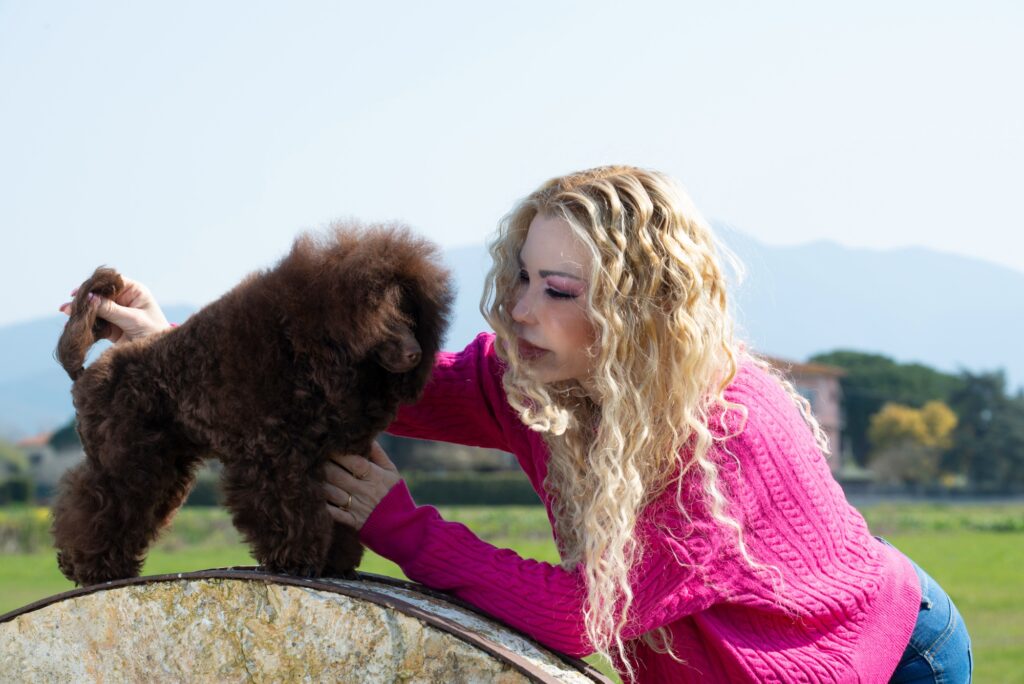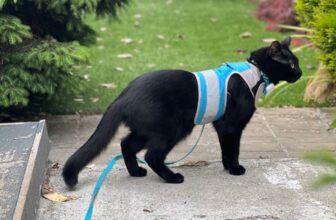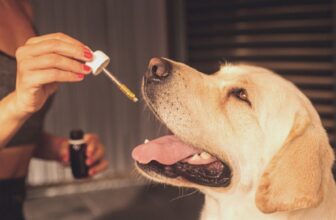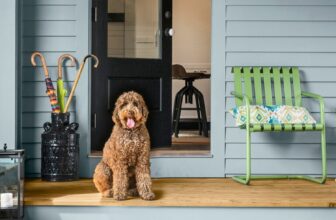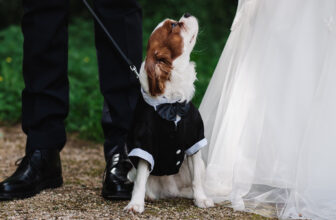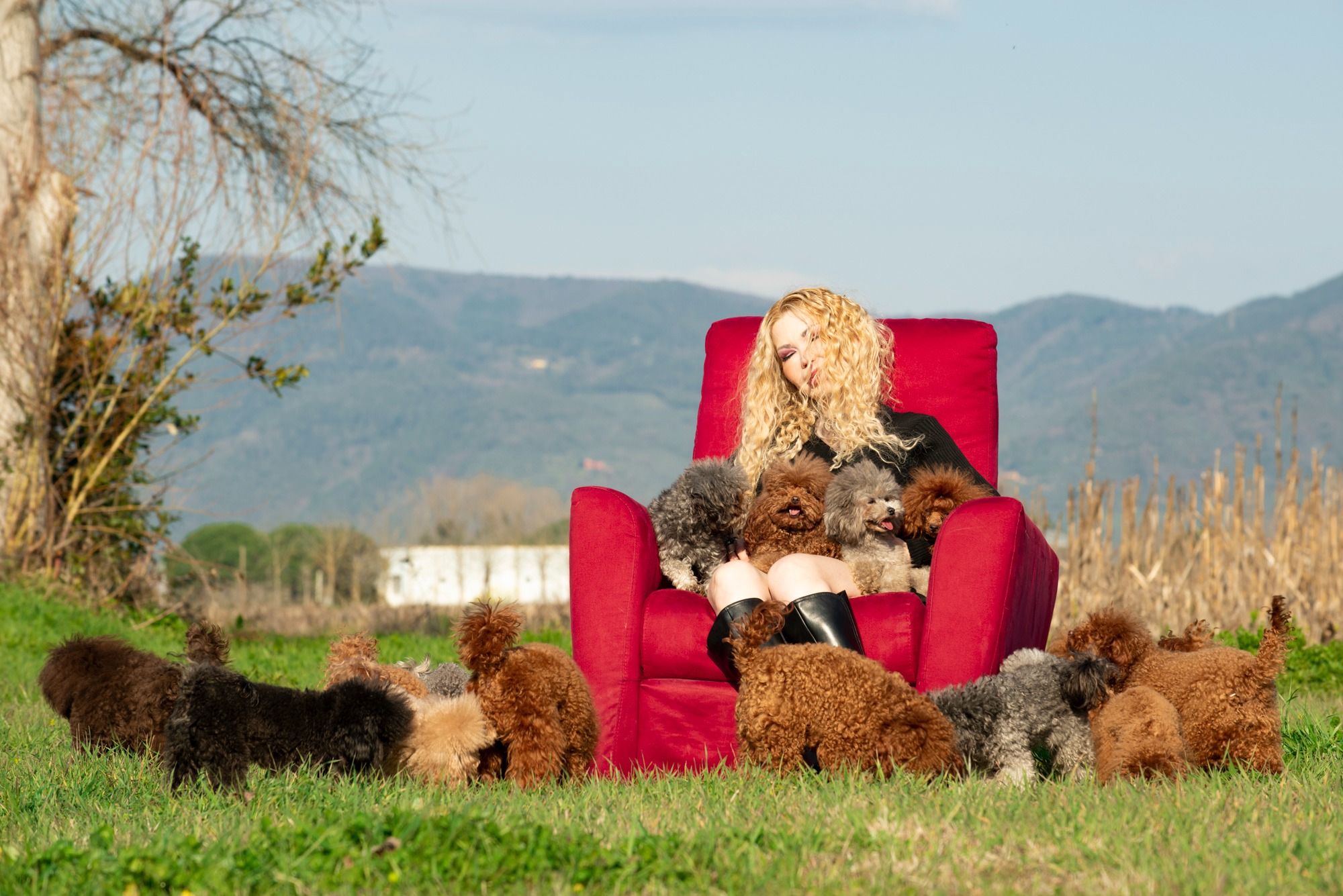
Toy Poodles are charming, tiny dogs that capture hearts with their cute appearance and lively personalities. These small dogs are part of the Poodle breed family, known for their extremely intelligent, easily trained, and hypoallergenic coats.
After Border Collies, they are the most intelligent dogs in the world, say the experts. Despite their appealing traits, Toy Poodles might not be the best choice for every household. It’s crucial to understand their specific needs and characteristics before deciding to bring one home.
They are agile and graceful as well as smart, and they enjoy and excel in a variety of canine sports, including agility, obedience, and tracking. They have a high work ethic and they are excellent water retrievers and also compete in dock diving and retriever hunt tests.
Toy Poodles require careful attention, consistent training, and adequate mental and physical stimulation. They also have unique health considerations and need frequent grooming to keep their coats in good condition.
In this article, we’ll explore whether a Toy Poodle is the right fit for you. For those interested in learning more about Toy Poodles, allevamento barboncino toy provides valuable insights into this breed.
Table of Contents
Toy Poodle Temperament
Toy Poodles are known for their intelligence and playful nature. They are quick learners and enjoy mental challenges, making them excellent candidates for training. However, their intelligence also means they can become bored easily if not mentally stimulated. Boredom can lead to unwanted behaviors, such as excessive barking or destructive chewing.
Despite their small size, Toy Poodles are active dogs. They enjoy playtime and regular exercise, which helps keep them happy and healthy. However, their high energy levels can be overwhelming for some owners, especially those who prefer a more relaxed lifestyle.
Poodles are “soft” and sensitive dogs, sometimes hypersensitive. If you touch them unexpectedly or startle them with a sudden loud sound, they tend to flinch. Similarly, Toy Poodles can get emotionally upset if there’s too much activity conflict, or roughhousing in your household – they prefer peace and harmony.
Training Needs
Training a Toy Poodle can be both rewarding and challenging. These dogs are highly trainable due to their intelligence, but they can also be stubborn at times. Consistent and positive reinforcement-based training is essential to help them develop good behavior.
Without proper training, Toy Poodles may become demanding or develop separation anxiety, which can be challenging for inexperienced dog owners to handle.
Training should also include socialization to help Toy Poodles become well-rounded dogs. They can be cautious or shy around strangers, so early socialization helps them feel more comfortable in different environments and around new people.
Are Toy Poodles good for first-time owners? They are highly intelligent and trainable, making them an excellent choice for first-time dog owners. They are loyal and affectionate towards their family and love nothing more than spending time with their owners. They are also great with children and make excellent family pets.
Grooming Requirements
Toy Poodles have beautiful, curly coats that require regular grooming to maintain. Their coats are prone to matting, so they need to be brushed frequently and trimmed regularly. This grooming routine can be time-consuming and may require professional grooming services, which can be costly over time.
Owners who are not prepared to commit to regular grooming may find Toy Poodles challenging to care for. Additionally, without proper grooming, these dogs can develop skin issues or become uncomfortable due to tangled fur.
Health Considerations
Like all breeds, Toy Poodles have specific health considerations. They are prone to certain genetic conditions, such as patellar luxation, hip dysplasia, and progressive retinal atrophy. Regular veterinary check-ups and preventive care are essential to keep Toy Poodles healthy.
Toy Poodles also have a delicate build, making them susceptible to injuries. They can be easily hurt if they fall from a height or are handled roughly, which makes them less suitable for households with small children who may accidentally harm them.
This pet is generally a healthy breed, although they are prone to watery eyes, digestive problems, heart disorders, and skin conditions.
Size and Living Space
Toy Poodles are small dogs, typically weighing between 4 and 6 pounds. Their small size makes them well-suited to apartment living or homes with limited space. However, their small size also means they are vulnerable to injuries and may not be the best choice for households with larger dogs or boisterous children.
While Toy Poodles do not require large living spaces, they do need regular exercise and mental stimulation. Owners who are unable or unwilling to provide these may find that a Toy Poodle is not the right fit for their lifestyle.
Potential for Allergies
One of the appealing traits of Toy Poodles is their hypoallergenic coats. This makes them a good option for people with allergies to pet dander. However, it’s important to note that no dog is completely hypoallergenic, and some people may still have allergic reactions to Toy Poodles.
Prospective owners with allergies should spend time around Toy Poodles before deciding to bring one home to ensure they do not have adverse reactions.
Summary
While Toy Poodles have many appealing qualities, they are not the right dog for everyone. Their intelligence, energy levels, and grooming needs can make them challenging to care for, especially for inexperienced or busy owners. However, for the right person, a Toy Poodle can be a loving and loyal companion.
If you are considering getting this pet, it’s important to carefully evaluate whether you have the time, resources, and lifestyle to meet their needs. These dogs thrive best in environments where they receive adequate attention, exercise, and grooming. For those who are prepared for the responsibilities that come with owning a Toy Poodle, they can offer years of joy and companionship.

